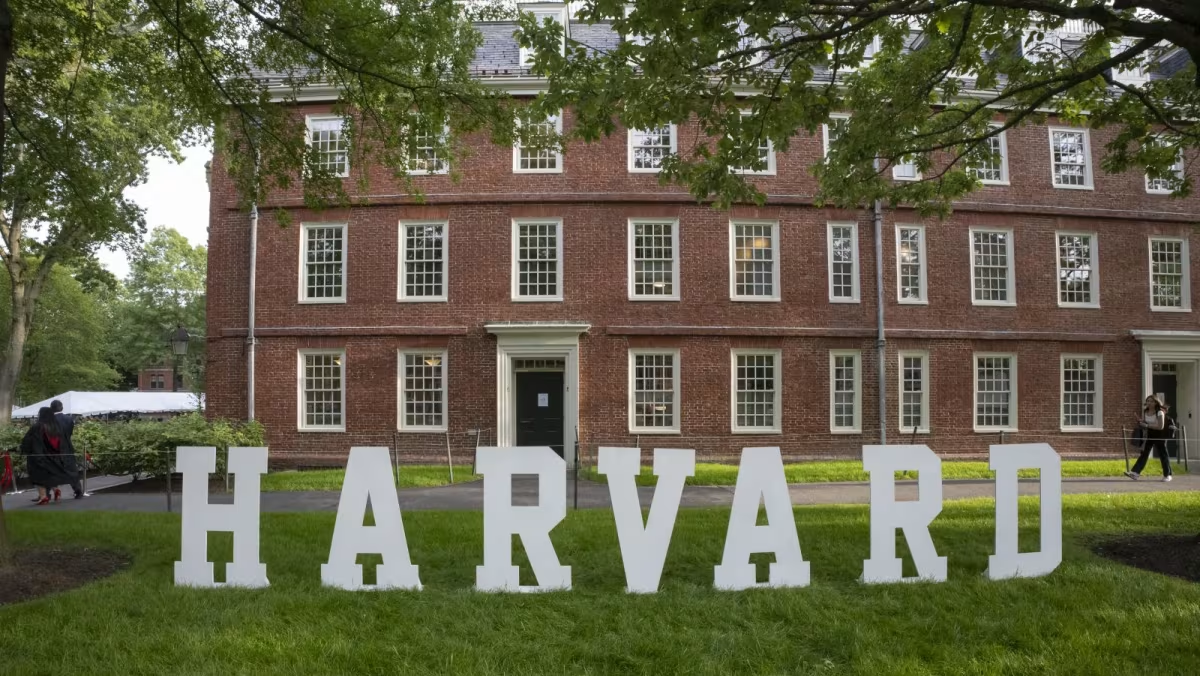Harvard wins a legal pause against Trump’s ban on international students, as court rules policy could cause serious harm to the university.
Legal Victory for Harvard Against Trump’s Student Ban
In a significant legal development, Harvard University has secured a temporary injunction against an executive order by U.S. President Donald Trump, which sought to bar foreign students and researchers from entering the country. The case marks another high-profile clash between academic institutions and the federal government over immigration policy.
Federal Court Grants Temporary Restraining Order
U.S. District Judge Allison Burroughs, based in Boston, issued a temporary restraining order on Thursday, halting enforcement of the presidential proclamation. The court found that Harvard would suffer “immediate and irreparable injury” should the policy go into effect. The order came after the university amended an earlier lawsuit filed on May 23, challenging related restrictions. A hearing is scheduled for June 16 to determine the next steps.
The Trump Administration’s Accusations
President Trump issued the proclamation on Wednesday, citing Harvard’s alleged refusal to provide information on international student misconduct as a threat to national security. The executive order effectively barred foreign students and researchers affiliated with the university from entering the United States. Furthermore, the administration had previously revoked Harvard’s authority to sponsor student visas.
Government Response: A Delay of Justice?
Tricia McLaughlin, Assistant Secretary of the Department of Homeland Security, criticized the ruling, stating that it “delays justice and seeks to kneecap the President’s constitutionally vested powers.” She emphasized that admitting foreign students is a privilege, not a right, and accused institutions like Harvard of padding their endowments with higher tuition from international students. McLaughlin added that the administration remains committed to reforming the student visa system and expects higher courts to uphold its position.
Harvard’s Rebuttal: Retaliation and Academic Freedom
Harvard President Alan Garber urged swift judicial action and condemned the administration’s move as retaliatory. In a public statement, Garber asserted that targeting the university for enrolling international students and collaborating globally was unlawful. He announced that contingency plans were being developed to ensure students and scholars could continue their academic work throughout the summer and the upcoming academic year.
Broader Implications for U.S. Higher Education
The case has broader implications for the future of international education in the United States. Many experts warn that such restrictions could damage the country’s global academic reputation and discourage top talent from choosing the U.S. as a study destination. International students contribute significantly to university revenues and the national economy, while also playing vital roles in research and innovation.
A Political and Legal Tug of War
While the Trump administration claims national security concerns justify stricter oversight of foreign students, critics argue the policies are politically motivated and undermine academic independence. As the legal battle continues, universities across the U.S. are closely watching the case, which could set a precedent for how far the government can go in regulating international academic exchanges.



